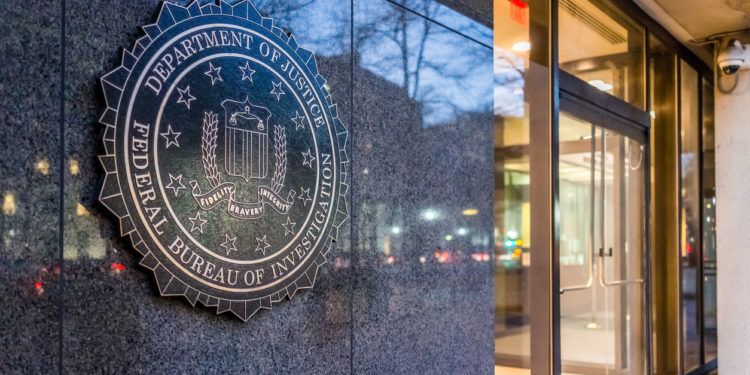The FBI’s disciplinary process consists of investigation, proposal, decision, and an appellate stage to review the decision. In 2004, the FBI fundamentally altered this system by placing the proposal and decision stages in the hands of the Assistant Director (AD) of the FBI’s Office of Professional Responsibility (OPR). This meant that, contrary to an established principle of judicial fairness, the OPR AD would be prosecutor and judge, assembling the case against an employee and deciding the outcome of that same case.
In 2009, when the Department of Justice – Office of Inspector General (OIG) criticized the FBI for failing to separate these stages — something other DOJ-component agencies had done to ensure a system of checks and balances — the FBI refused to make this change. This refusal came on the heels of a 2005 decision to weaken the appellate standard for reviewing disciplinary decisions, thus undermining the appellate stage’s effectiveness as a check and balance on a system that the FBI had already made inherently unfair.
My observation, and that of others, found that control over both the decision and proposal stages of the FBI’s disciplinary process permitted OPR to engage several astounding and potentially unlawful practices such as disingenuously charging and finding employees lacked candor, misrepresenting or omitting evidence to support such charges, and preventing the acquisition of evidence to refute such charges. Due to the weakened appellate standard, which permitted the appellate official to evaluate only the reasonableness of OPR’s decision and required it to be upheld even if the appellate official disagreed with it, these practices made it exceedingly difficult for a charged employee to overturn a lack of candor charge, which carries a mandatory-dismissal penalty that cannot be reduced on appeal. This meant an employee would have to overturn the charge to retain his or her job.
Thus, simply by charging lack of candor, even disingenuously, the OPR AD can often push a charged employee to resign rather than accept the stigma of being fired and potentially becoming unemployable. Put another way, the indomitable power vested in the OPR AD makes the FBI’s disciplinary process perilous for FBI whistleblowers facing retaliatory discipline. Former Special Agent John Parkinson knows this better than anyone. His dismissal from the FBI’s roles perfectly encapsulates how OPR sides with management to punish whistleblowers.
By all accounts, John Parkinson was a dedicated FBI agent who as a former U.S. Marine took the Semper Fidelis mindset with him to the FBI. In his tenth year of FBI service, after informing his supervisor that two colleagues had been using undercover assets to host prostitutes, Parkinson suddenly found himself accused of financial malfeasance. When a witness produced evidence to exonerate him, he was instead charged in the FBI’s disciplinary process with lack of candor.
Parkinson’s great sin?
He “asked” the witness to give the exonerating evidence to a supposed independent OIG investigator because he believed the FBI was retaliating against him for exposing his colleagues. When the witness described that Parkinson had “told” him to do so, OPR pounced on the distinction. The finding did not pass the smell test. In overturning it, the U.S. Court of Appeals concluded that not only was the distinction between “asked” and “told” trivial but that both Parkinson and the witness had used the words interchangeably throughout their testimony.
What is important to understand is that the OPR AD did not analyze the facts and determine Parkinson lied. Nor did the OPR AD care about the truth or falsity of a charge that, incredibly, concerned evidence that exonerated Parkinson of the much more serious malfeasance charge. Instead, the OPR AD, as both prosecutor and judge, concocted a superficial lack of candor charge, held it in abeyance while weighing factors having nothing to do with the charge, and then found, based on those factors, that the charge was correct.
Parkinson’s case illustrates just how susceptible the FBI’s disciplinary process is to managerial influence and consequently, how dangerous the process is for whistleblowers. The charges in Parkinson’s case were so specious that sound disciplinary reasoning could not have produced them. More likely, they were the product of discussions between Parkinson’s superiors and the OPR AD, who had a documented history of soliciting and considering off-the-record information unrelated to the facts of the case. At least one FBI agent, serving temporarily in a managerial role, was privy to a roundtable discussion in which Parkinson’s managers discussed how to get rid of him for blowing the whistle. If not for Parkinson’s status as a preference-eligible veteran, which gave him the right to appeal OPR’s decision in federal court – a dispensation few FBI employees have – they would have succeeded.
To protect FBI whistleblowers, the FBI must implement a 2009 OIG recommendation to create independent charging and decision mechanisms in the FBI’s disciplinary process. The FBI should also create an independent, meaningful appellate process, including by restoring a de novo review standard that would act as an additional safeguard for whistleblowers faced with retaliatory discipline. These changes would ensure the FBI’s disciplinary system is consistent with the most basic tenet of our judicial system – due process with checks and balances.
The alternative is that potential FBI whistleblowers will continue to be reluctant to report waste, fraud, and abuse of authority for fear of being speciously charged in a disciplinary process stacked against them.


